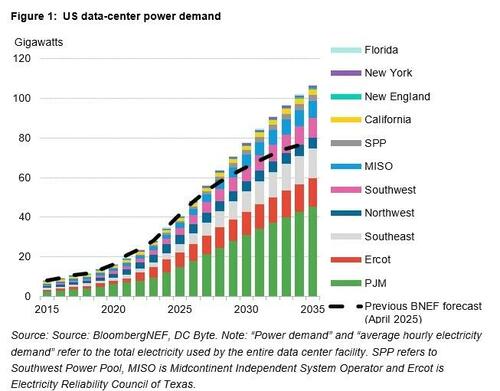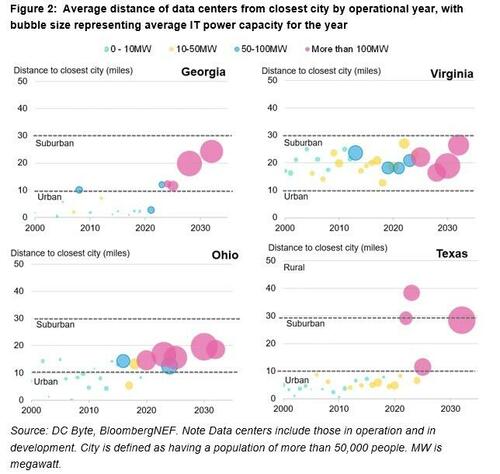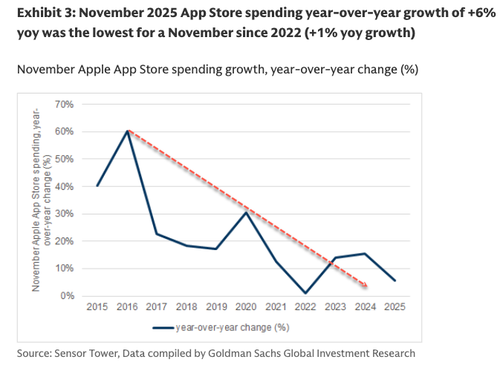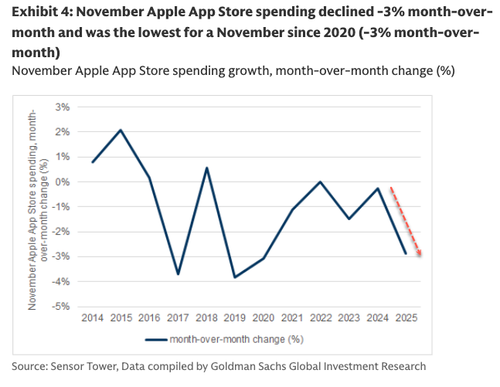The Link Between Transgenderism and Autism
Authored by Darlene McCormick Sanchez via The Epoch Times (emphasis ours),
Chloe Cole grew up a tomboy, was diagnosed with attention-deficit hyperactivity disorder (ADHD) by age 7, and referred for autism screening by age 17.
 Chloe Cole, who began transitioning at age 12 and now regrets surgically removing her breasts, holds testosterone medication used for transgender patients in Northern California on Aug. 26, 2022. John Fredricks/The Epoch Times
Chloe Cole, who began transitioning at age 12 and now regrets surgically removing her breasts, holds testosterone medication used for transgender patients in Northern California on Aug. 26, 2022. John Fredricks/The Epoch Times
Cole began identifying as a boy during adolescence and sought physical changes to match.
Doctors readily consented to medical intervention. They prescribed puberty blockers and testosterone at age 13. At 15, surgeons performed a double mastectomy, she told The Epoch Times.
But doctors didn’t address her neurological issues first. The same gender specialist who referred her for breast surgery later referred her for autism screening. Cole has described herself as being on the autism spectrum, but said she was never formally diagnosed.
Cole is now a leading campaigner against interventions to transition children with gender dysphoria.
She said many of those she knew personally when she was involved in the transgender community, as well as many of the detransitioners she knows, “are either somewhere on the autism spectrum, or they have been diagnosed with similar conditions, like ADHD.”
Her observations are increasingly supported by research. For at least a decade, studies have reported links among transgender identity, autism, and other neurological conditions. These connections have recently gained greater public attention.
Growing evidence of an autism–transgender link is already prompting some nations to recommend neurological screening before intervention. In America, the treatment model remains unchanged, and the predominant “affirmation” model makes the link difficult to investigate.
 Chloe Cole in Washington on Jan. 12, 2023. The overlap between gender dysphoria and neurodevelopmental issues such as autism and ADHD is more pronounced than people realize, Cole said. Melvin Soto-Vázquez/Cpi Studios For The Epoch Times
Chloe Cole in Washington on Jan. 12, 2023. The overlap between gender dysphoria and neurodevelopmental issues such as autism and ADHD is more pronounced than people realize, Cole said. Melvin Soto-Vázquez/Cpi Studios For The Epoch Times
Autism and Gender Dysphoria
A report published this month by the British think tank Centre for Social Justice showed that autism and ADHD were “overrepresented,” or disproportionately high, among youth with gender dysphoria.
The report, citing data from the UK’s National Health Service, showed 32.4 percent of gender dysphoria referrals had an autism diagnosis, and 11.7 percent had an ADHD diagnosis.
Those numbers were 16 times higher than the national population averages for autism, and more than twice as high for ADHD. The population-wide averages for autism and ADHD in the United Kingdom are estimated at 2 percent and 5 percent, respectively.
“Individuals with autism spectrum disorder are far more likely to identify as transgender,” Joseph Nicolosi Jr., a licensed clinical psychologist and researcher in California, told The Epoch Times via email.
A pair of studies conducted in 2016 and 2019 indicate that autistic children are between four and seven times more likely to experience gender dysphoria or gender variance, he said. A 2019 study was conducted by researchers at the Uniformed Services University of the Health Sciences, and a 2016 study was conducted at New York University.
Nicolosi said there are several reasons for the connection, including “rigid thinking.”
For example, if a boy with autism lacks stereotypical male interests, he may doubt he is a boy and assume he must be a girl. Reading social cues is often hard for those with autism, so they may perceive same-sex peers as getting along better than they do.
“This heightens their sense of alienation from their peers,” Nicolosi said.
 Chloe Cole holds a childhood photo in Northern California on Aug. 26, 2022. Cole recalled that around fourth grade she started to have difficulty coping with her body beginning to mature—‘a common sentiment amongst people who have either ADHD or autism.’ John Fredricks/The Epoch Times
Chloe Cole holds a childhood photo in Northern California on Aug. 26, 2022. Cole recalled that around fourth grade she started to have difficulty coping with her body beginning to mature—‘a common sentiment amongst people who have either ADHD or autism.’ John Fredricks/The Epoch Times
Cole recalled having difficulty coping with her body beginning to mature around the fourth grade, younger than most of her peers.
“The older I got, the less I associated with femininity, and I didn’t really feel like I fit in—especially with my female peers—but with my peers in general,” she said.
“It’s a common sentiment amongst people who have either ADHD or autism.”
Erin Friday, who gained national attention for successfully steering her ADHD daughter away from identifying as a transgender male, said she knows many detransitioners who are on the autism spectrum. A detransitioner is someone who had previously taken steps to transition to the opposite gender.
But most of the medical community doesn’t recognize transgender identity as a maladaptive coping mechanism, she told The Epoch Times.
They view autism and transgender identity as complementary and natural, instead of looking at causality, she said.
“This is the intersection of autism and transgenderism, like peas and carrots, it goes together,” Friday said. “They’re not even looking at ... what is the causality?”
She observed that some hospitals offering pediatric transgender care have integrated autism and gender dysphoria services.
“It’s a feeder,” she said. “So it gives an endless stream of patients.”
Children’s National Hospital in Washington runs a Gender and Autism Program that treats autistic patients with gender dysphoria, illustrating the recognized connection between the two, she noted.
“We do not understand why autism and gender expansiveness often occur together, but we do know that this co-occurrence can be complex to navigate for young people and their families,” the website states.
The hospital did not respond to a request for comment.
 Attorney Erin Friday joins “Our Duty” supporters at the California State Capitol Building in Sacramento on Aug. 28, 2023. Friday gained national attention for successfully steering her daughter with ADHD away from identifying as a transgender male. John Fredricks/The Epoch Times
Attorney Erin Friday joins “Our Duty” supporters at the California State Capitol Building in Sacramento on Aug. 28, 2023. Friday gained national attention for successfully steering her daughter with ADHD away from identifying as a transgender male. John Fredricks/The Epoch Times
Neurological Screening
In the UK, a seminal report released last year on how the country has handled treatment of children with gender dysphoria suggested screening children for neurodevelopmental conditions, including autism and mental health issues.
That review, led by pediatrician Dr. Hilary Cass, sparked a wave of reforms, and the UK’s National Health Service all but halted the prescription of puberty blockers because there was a lack of evidence that the treatment was beneficial.
The Cass report found that young people distressed about their gender often have complex problems contributing to that distress, including mental illness, neurodiverse traits, and a variety of social problems.
Sweden and Finland recommend that neurodevelopmental conditions such as Autism and ADHD be addressed as part of the evaluation process for the treatment of pediatric gender dysphoria.
In the United States, however, psychological organizations prioritize “gender-affirming care” without recommending neurological screening.
Instead, most follow the World Professional Association for Transgender Health (WPATH) Standards of Care, which call for individualized, age-appropriate care to “improve health and wellbeing” of youth who identify as transgender.
The organization says assisting gender dysphoric patients “may include gynecologic and urologic care, reproductive health, voice and communication therapy, mental health services (e.g., counseling, psychotherapy), and/or hormonal or surgical treatments, among others.”
 Pediatrician Dr. Hilary Cass speaks about the publication of the Independent Review of Gender Identity Services for Children and Young People in London on April 9, 2024. The report recommends screening children for neurodevelopmental conditions, including autism, as well as for mental health issues. Yui Mok/PA Wire
Pediatrician Dr. Hilary Cass speaks about the publication of the Independent Review of Gender Identity Services for Children and Young People in London on April 9, 2024. The report recommends screening children for neurodevelopmental conditions, including autism, as well as for mental health issues. Yui Mok/PA Wire
WPATH does not believe an autism diagnosis should prevent “gender-affirming care.”
“There is no evidence to suggest a benefit of withholding [gender affirming medical and surgical treatments] from [transgender] people who have gender incongruence simply on the basis that they have a mental health or neurodevelopmental condition,” according to WPATH.
Likewise, a 2023 commentary appearing in the journal of the American Academy of Pediatrics said that autistic youth deserve “gender-affirming care, and an [autism spectrum] diagnosis should not prevent youth and families from providing informed consent to gender-affirming care.”
The Autistic Self-Advocacy Network said in its June newsletter that the government shouldn’t interfere with an autistic person’s decision to transition.
“They think autistic people cannot really know if we are transgender. They say we are being tricked or we are confused. They think we should not be allowed to get gender-affirming care,” the newsletter stated.
Republican lawmakers in many states have enacted bans against gender-related medical treatments on minors, with corresponding federal actions to restrict funding for such practices.
Shortly after taking office earlier this year, President Donald Trump signed an executive order stating that the federal government will not fund or promote transition-related care for children who identify as a different gender.
This spring, the Department of Health and Human Services (HHS) released a 409-page review of medical procedures used for gender dysphoric children. The report advocates for psychotherapy as a “noninvasive alternative to endocrine and surgical interventions,” since the benefits of hormones or surgery have not been established.
“Many of these children and adolescents have co-occurring psychiatric or neurodevelopmental conditions, rendering them especially vulnerable,” the executive summary for the report states.
Read the rest here...
Tyler Durden
Wed, 12/03/2025 - 20:05



 Chloe Cole, who began transitioning at age 12 and now regrets surgically removing her breasts, holds testosterone medication used for transgender patients in Northern California on Aug. 26, 2022. John Fredricks/The Epoch Times
Chloe Cole, who began transitioning at age 12 and now regrets surgically removing her breasts, holds testosterone medication used for transgender patients in Northern California on Aug. 26, 2022. John Fredricks/The Epoch Times Chloe Cole in Washington on Jan. 12, 2023. The overlap between gender dysphoria and neurodevelopmental issues such as autism and ADHD is more pronounced than people realize, Cole said. Melvin Soto-Vázquez/Cpi Studios For The Epoch Times
Chloe Cole in Washington on Jan. 12, 2023. The overlap between gender dysphoria and neurodevelopmental issues such as autism and ADHD is more pronounced than people realize, Cole said. Melvin Soto-Vázquez/Cpi Studios For The Epoch Times Chloe Cole holds a childhood photo in Northern California on Aug. 26, 2022. Cole recalled that around fourth grade she started to have difficulty coping with her body beginning to mature—‘a common sentiment amongst people who have either ADHD or autism.’ John Fredricks/The Epoch Times
Chloe Cole holds a childhood photo in Northern California on Aug. 26, 2022. Cole recalled that around fourth grade she started to have difficulty coping with her body beginning to mature—‘a common sentiment amongst people who have either ADHD or autism.’ John Fredricks/The Epoch Times Attorney Erin Friday joins “Our Duty” supporters at the California State Capitol Building in Sacramento on Aug. 28, 2023. Friday gained national attention for successfully steering her daughter with ADHD away from identifying as a transgender male. John Fredricks/The Epoch Times
Attorney Erin Friday joins “Our Duty” supporters at the California State Capitol Building in Sacramento on Aug. 28, 2023. Friday gained national attention for successfully steering her daughter with ADHD away from identifying as a transgender male. John Fredricks/The Epoch Times Pediatrician Dr. Hilary Cass speaks about the publication of the Independent Review of Gender Identity Services for Children and Young People in London on April 9, 2024. The report recommends screening children for neurodevelopmental conditions, including autism, as well as for mental health issues. Yui Mok/PA Wire
Pediatrician Dr. Hilary Cass speaks about the publication of the Independent Review of Gender Identity Services for Children and Young People in London on April 9, 2024. The report recommends screening children for neurodevelopmental conditions, including autism, as well as for mental health issues. Yui Mok/PA Wire


 Federal officers arrest a man in the District of Columbia on Aug. 30, 2025. Tasos Katopodis/Getty Images
Federal officers arrest a man in the District of Columbia on Aug. 30, 2025. Tasos Katopodis/Getty Images


 Rep. Henry Cuellar (D-Texas) gives an interview in Laredo, Texas, on Oct. 9, 2019. Veronica Cardenas/Reuters
Rep. Henry Cuellar (D-Texas) gives an interview in Laredo, Texas, on Oct. 9, 2019. Veronica Cardenas/Reuters





Recent comments